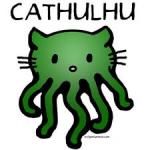The sanctions argument has always been a controversial one, but when it comes to the possibility of an insane dictator actually willing to use them, then people start to think maybe sanctions are kinder to the residents of the country in question than the possibly ensuing nuclear holocaust would be. If we don't remain diligent about the possibility of nuclear war, then who knows what will happen? I think if I was in Iran and had to worry about the crazy dude in Israel who hates Iran and has nukes, I'd want my country to have nukes too. (I even think that if I ruled such a country, I'd be insane too.)
Like, the Pakistani weren't terribly worried about getting nuclear weapons until India got them, and then it became a necessity. And as much as we tried to stop them, in the end we weren't successful. I think we need to round up all the uranium and send it to a random planet somewhere. Will that work? (Not a nuclear scientist, clearly.)
By the way, I've been reading up on Pakistan's nuclear journey kind of accidentally because I was just reading up on their history in general. I went from a documentary about the US getting double-played by Pakistan after 9/11 to a documentary about Benazir Bhutto (which started with her dad) to digging around in the archives of official .gov declassified documents. Like this one:
September 11, 1976
There's a blog called Pakistan Media Watch where they analyze spin and whatnot, and when I was digging around to see if there was any evidence of US involvement in Ali Bhutto's ouster (Zia military coup), I found this:
http://pakistanmedia...d-hamid-mir-ii/
This person argues that there's no evidence that Henry Kissinger ever actually threatened to make 'a horrible example' of Ali Bhutto (if Bhutto continued to pursue nuclear capability). So I dug around, and while they were right that no one talks about it in the media etc., eventually found that September 11 Kissinger document linked above. It's a documentation of a conversation between Henry Kissinger and Yaqub Khan, who was Pakistan's Ambassador to the US. Kissinger worked for Gerald Ford, and Ford was running for a second term against Jimmy Carter. The Pakistani were working on a deal with the French for a nuclear reprocessing facility, and Kissinger was trying to stop that deal in its tracks.
Quote
Kissinger: ...What I wanted to tell you this afternoon is the same thing that I've told Giscard and your Prime Minister. The nuclear reprocessing issue has become a domestic issue. Each of us is in exactly the same boat.
YAQUB: The Prime Minister thinks it is a very sensitive issue.
Kissinger: Yes. Giscard is sensitive, as is your Prime Minister. Frankly, there are two interpretations of what your Prime Minister told me in Lahore. First is that you have decided to go ahead and have simply taken an elegant way of saying that neither of you can take the initiative cancelling it. Or, both of you are now on the horns of a dilemma with, ramifications neither could foresee. You know what the American domestic situation is. You know that if the Democrats win, they would like nothing better than to make a horrible example of somebody. They would love to take on the French, but they can't. They cannot be accused of being anti-European integration and anti-NATO, let alone anti-Atlantic. If the Democrats win, you will face an assault and they will attack you. Credit and arms sales will be much more difficult, even impossible. You know that the last thing I want to do is to be responsible for this. Frankly, what I would like at this point is some sense of what you would like to do.
They dance around for a little while, and finally Yaqub Khan says that he doesn't have the authority to say what they would do if the French backed out of the deal first, and because they had made an agreement, they didn't want to be the first to back out. It was a feint, of course...on both sides. After Carter won the election, but before he took office, they met again:
December 17, 1976
Quote
YAQUB: When does your new Congress convene?
Kissinger: Early in January and it will be a new administration which was elected on a plank of non-proliferation. And I think I can assure you that it won't avail itself of escape clauses, or
Symington amendments.
YAQUB: We're locked into a pretty firm position. We can't cancel.
Kissinger: How about joint cancellation.
YAQUB: If the French were to break their agreement, I'm afraid we just wouldn't understand.
Kissinger: What should we announce to the press?
YAQUB: I will simply say that I came in to discuss a variety of matters with you.
(At 4:00 p. m. the Secretary indicated the others should leave the room while he and Yaqub Khan met privately for five minutes.)
In other words, Yaqub Khan basically told Kissinger FU.
Details of the proposed deal.
 EmperorMagus, on 23 October 2012 - 01:46 PM, said:
EmperorMagus, on 23 October 2012 - 01:46 PM, said:
 Help
Help

















